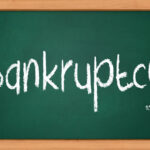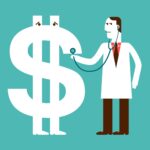Overdue Bills
Massachusetts Bankruptcy Lawyers Anthony Bucacci and Robert Simonian (508)673-9500
What Debts Must I Continue to Pay During My Chapter 7 Bankruptcy?
When you file for Chapter 7 bankruptcy, there are some debts that you must or should continue to pay.
Filing for Chapter 7 bankruptcy can wipe out many types of debt and help you get a fresh financial start. But not all obligations will go away. Find out which debts you should continue to pay if you file a Chapter 7 case.
What You’ll Pay During Chapter 7
Filing for Chapter 7 bankruptcy is an excellent way to get out from under dischargeable debt, such as credit card balances, medical bills, personal loans–especially if you don’t own much property, and you meet income requirements (you’ll know after taking the means test).
But Chapter 7 bankruptcy doesn’t help you get rid of everything you owe. Here are two types of debt that you’ll want to continue paying during your case.
Post-Petition Debt: Bills Incurred After Filing for Bankruptcy
When your bankruptcy case is pending, it’s common to get a bill and wonder whether the balance will be included in your matter. If you incurred the debt after filing for bankruptcy, the court won’t include it in your bankruptcy. It’s a post-petition debt and you should pay it.
Examples of common post-petition debts include:
- domestic support obligations, such as child and spousal support
- utilities
- rent and lease payments
- condo or homeowners association (HOA) fees
- most taxes, and
- insurance.
Whether the court will wipe out a balance that existed before the bankruptcy filing will depend on whether the obligation qualifies for a discharge. For instance, a utility balance predating the bankruptcy will likely get wiped out because most utility bills are dischargeable. By contrast, child support arrearages aren’t dischargeable, so you’ll continue to owe any outstanding arrearages after the case.
Debt Secured by Collateral: Mortgages, Car Loans, and More
When you purchase expensive property on credit, the lender often requires collateral in case you fail to pay the loan. Known as a “secured debt,” this type of loan is used when taking out a:
- mortgage
- home equity line of credit
- car loan, or
- a loan for business property, such as fixtures or equipment.
Whether you can discharge a secured debt will depend on if you return the property you pledged as collateral. If you give the collateral back to the bank, the loan associated with it will be dischargeable in your bankruptcy case.
By contrast, if you want to keep collateral in Chapter 7 bankruptcy, you should continue making regular payments until you satisfy the loan. Otherwise, the lender can use its lien rights—a type of ownership interest in the property—to take back the property in a foreclosure or repossession.
If you fall behind while you’re in bankruptcy, the bank must file a motion and get permission from the court to proceed against the property; however, once the case ends, the lender is free to pursue its lien rights.
Most Payment Responsibility Stops During Bankruptcy
Even if you can’t discharge all of your debt, you still might get a brief payment break. The automatic stay protection that stops most creditors from engaging in collection attempts during bankruptcy extends to most debts that you can’t discharge, including:
- student loans
- most taxes, and
- government or court fines and penalties.
Keep in mind, however, that once your bankruptcy case is closed and the automatic stay is terminated, you will remain legally obligated to pay those nondischargeable debts. (Learn which debts cannot be discharged in Chapter 7 bankruptcy.)
How much you’ll have to pay after your Chapter 7 case will depend on whether you have property that isn’t protected by a bankruptcy exemption. Since many Chapter 7 filers can keep all of their property, most nondischargeable debt balances will remain the same.
The amount you owe should drop, however, if the bankruptcy trustee appointed to your case can sell nonexempt property and use the funds to pay down creditors according to the priority payment system. The system ensures payment of important debt (such as nondischargeable support obligations and taxes) before less essential obligations (such as credit card balances and student loan debt).
Example. Carter couldn’t make the monthly payment on his credit card balance of $25,000. He also owed $2,000 in child support arrearages and $1,500 from the prior year’s taxes. Needing a fresh start, he filed for Chapter 7 bankruptcy, even though he couldn’t protect his skeet shooting guns worth $10,000. The trustee sold the guns and, following payment priority rules, paid the child support and tax arrearages in full before applying the balance toward the credit card debt. Because the remaining credit card balance qualified for a discharge, at the end of his case, Carter was free of debt.
Voluntary Debt Repayment
You might decide to repay a debt that would be discharged in your bankruptcy—especially if you owe money to a friend or relative, or wish to continue seeing a particular medical provider. Keep in mind that you can’t use assets that creditors are entitled to receive. To avoid trouble, the simplest approach might be to wait to make the voluntary debt repayment until after your bankruptcy closes.
Source : nolo.com







 With everything that is going on, many people are concerned about their health and on going cost of prescriptions. One’s medical bills can cause great concern and keeping up with them can be a real challenge and finical concern. The question many have is “what can I do?”
With everything that is going on, many people are concerned about their health and on going cost of prescriptions. One’s medical bills can cause great concern and keeping up with them can be a real challenge and finical concern. The question many have is “what can I do?”